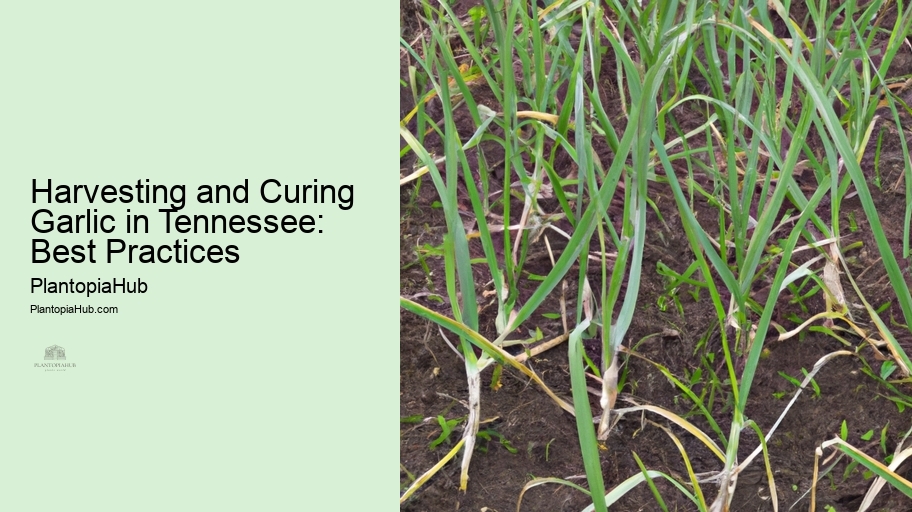

Organic garlic-based pesticides can be a valuable addition to your toolkit as a Tennessee farmer. Garlic contains natural compounds that repel pests and discourage fungal growth. Create your own garlic pesticide by blending garlic cloves with water and a small amount of liquid soap.
Using DIY garlic-based pesticides aligns with organic farming principles, promoting a healthy and pest-resistant garlic crop.
In conclusion, incorporating homemade garlic-based pesticides into your organic farming practices can help maintain a thriving and pest-free garlic crop in Tennessee.
Presentation is key when selling garlic at farmers' markets in Tennessee. Clean and trim your garlic bulbs for an attractive appearance. Arrange them neatly in baskets or on display tables. Pest Control Methods Consider offering garlic in various packaging sizes to cater to different customer preferences.
Highlight the unique qualities of your garlic, such as its flavor, variety, and organic certification. Engage with customers and share your passion for garlic farming to build trust and loyalty.
In conclusion, effective presentation and engagement techniques can enhance your garlic sales at farmers' markets in Tennessee, attracting customers and boosting your brand.
Hosting garlic braiding workshops can be a fun and educational addition to your Tennessee garlic farm. Invite participants to learn the art of garlic braiding, a traditional skill that adds value to garlic bulbs.
Share techniques for creating beautiful garlic braids, and allow attendees to take home their creations. These workshops not only generate additional income but also foster a sense of community around your farm.
In conclusion, offering garlic braiding workshops is a unique way to engage with your local community and promote your garlic farm in Tennessee.
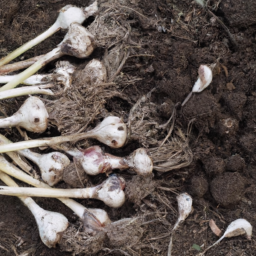
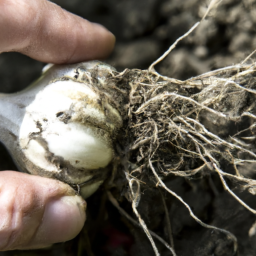
Share seasonal garlic recipes tailored to Tennessee's climate on your farm's website or social media.
Highlight the versatility of garlic and its ability to enhance the flavors of locally sourced ingredients. Agricultural Extension Services Garlic Varieties (e.g., Softneck, Hardneck) Encourage your audience to explore the culinary delights of homegrown garlic.
In conclusion, providing seasonal garlic recipes can inspire Tennessee residents to incorporate this flavorful ingredient into their cooking, supporting your farm's products.
Soil testing is a crucial step in preparing your Tennessee garlic plantation. Conduct a soil test to determine pH levels and nutrient deficiencies. Garlic Diseases Based on the results, amend your soil with organic matter like compost or well-rotted manure to optimize garlic growth.
Regular soil testing and amendments help maintain soil health and fertility, ensuring robust garlic crops year after year.
In conclusion, soil testing and proper amendments are essential for successful garlic plantation in Tennessee, providing the foundation for healthy garlic growth.
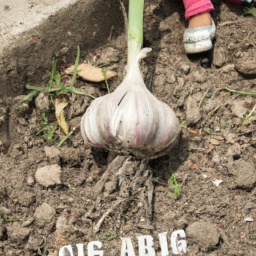
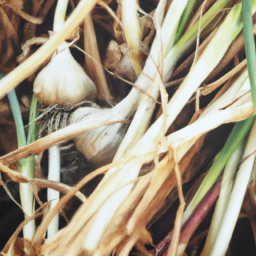
Efficient irrigation systems are essential for conserving water in Tennessee garlic farming. Drip irrigation or soaker hoses deliver water directly to the root zone, reducing water wastage and minimizing moisture-related diseases.
Monitor soil moisture levels and adjust your irrigation schedule accordingly, especially during hot and dry periods.
In conclusion, adopting efficient irrigation systems is a sustainable approach to water management in Tennessee garlic farming, promoting both plant health and environmental conservation.
Garlic can serve as an excellent companion plant in your Tennessee garden. Curing and Storage Solutions Plant garlic near susceptible crops to deter pests like aphids and nematodes. Its pungent odor and natural compounds act as a natural repellent.
Companion planting with garlic can improve the overall health and yield of neighboring plants, creating a harmonious garden ecosystem.
In conclusion, understanding the benefits of garlic as a companion plant can enhance the success of your Tennessee garden while reducing the need for chemical pesticides.
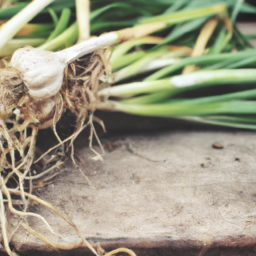
To protect your garlic crop from winter frost in Tennessee, consider applying a thick layer of mulch, such as straw or leaves, around your garlic plants in late fall. This mulch acts as insulation, preventing the soil from freezing and safeguarding the garlic bulbs. In extremely cold regions, you can also use row covers or cloches to provide additional frost protection. Be sure to maintain proper airflow to avoid condensation, which can lead to mold and rot.
Organic garlic farming in Tennessee offers several benefits. It promotes soil health, reduces chemical inputs, and produces garlic that meets high organic standards, appealing to health-conscious consumers. Organic practices also contribute to environmental sustainability by minimizing the impact on ecosystems. Furthermore, the demand for organic garlic continues to grow, making it a profitable venture for farmers who embrace these practices.